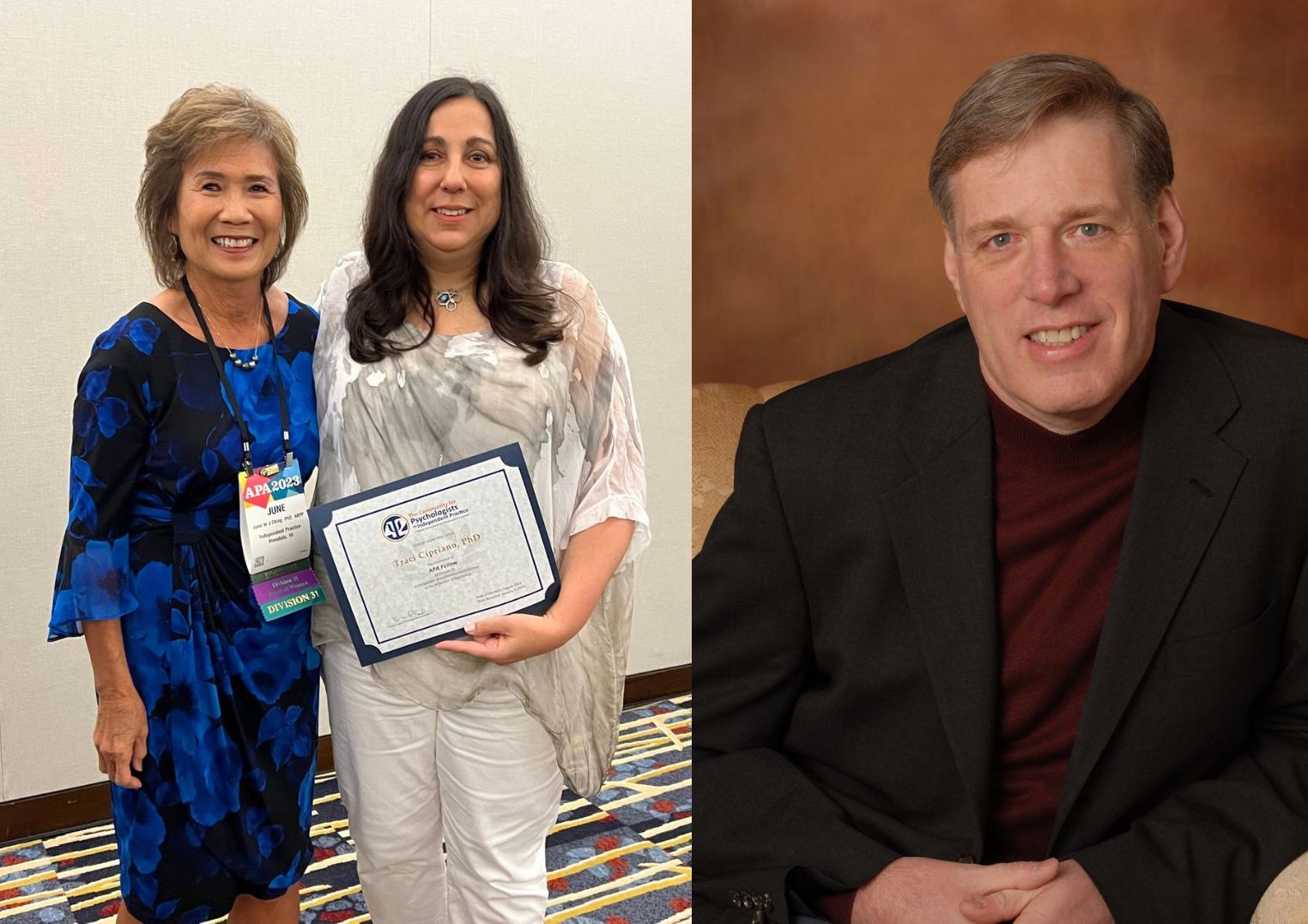Two professors named APA fellows for contributions to psychology
Yale faculty members Traci Cipriano and Thomas J. McMahon were recognized by the American Psychological Association for outstanding work.

Courtesy of Traci Cipriano and Thomas McMahon
In August, two Yale faculty members earned one of the most prestigious honors in the field of psychology.
Traci Cipriano, an assistant clinical professor in the Department of Psychiatry, and Thomas J. McMahon, an emeritus professor of psychiatry at the School of Medicine, were elected to fellow status at the American Psychological Association’s annual meeting — the largest gathering of psychologists in the world.
Fellow status recognizes psychologists who have nationally impacted psychology in a particular niche, according to Ronald Brown, chair of the APA Fellows Committee. Cipriano’s work concerned the mental health and wellness of lawyers, while McMahon’s dealt with the relationship between substance abuse and fatherhood.
They join a long list of APA fellows at Yale, including current Yale President Peter Salovey, who became a fellow for defining the term “emotional intelligence.”
“A fellowship represents a top 5 percent contribution in the field of psychology,” Brown told the News. “That’s important. They’ve made distinguished and unusual contributions to psychology.”
Brown leads the group of existing fellows who determine whether an APA member is eligible for fellow status. Applicants submit a lengthy statement arguing why they merit fellow status, along with three letters of recommendation from current APA fellows.
New fellows are categorized by the division of psychology in which a nominee specializes. Of the 56 total divisions, McMahon’s work related to Division 37, the Society of Child and Family Policy and Practice, and Cipriano’s work fell under Division 42, or Psychologists in Independent Practice.
Once the APA receives an application, the head of the fellows committee writes a letter of endorsement and sends it to a committee of three current fellows who review the application. If they do not unanimously agree on whether to grant fellow status, they pass it along to a larger committee for discussion.
Brown argued that this application process sets the APA apart.
“In some organizations you’re a fellow by becoming a member,” Brown said. “That’s not the case in psychology.”
Being named a fellow typically requires decades of research and practice receives national attention. For Cipriano, these decades were spent trying to reshape the narrative surrounding lawyers and wellness.
Cipriano was originally a lawyer, but ultimately decided to pursue a doctorate in psychology. Despite her pivot from the legal field, Cipriano took note of the mental issues plaguing lawyers during her period as an attorney. But when she began exploring the intersection of psychology and law, she explained, it was not a popular topic.
“The legal profession has historically not been interested in topics of self care or healthy work environments,” Cipriano said. “You do the work and get it done and that’s pretty much it.”
In Cipriano’s experience, individuals in the legal field often struggled with depression, anxiety and substance abuse.
Her research showed that lawyers who reported “perfectionism” and whose work interfered with their family lives ranked in the 89th percentile for distress.
“Many [lawyers] feel like they need to be able to reason their way out of their issues,” Cipriano said. “I see that as part of my challenge, helping them understand why this is important.”
Now, Cipriano’s work has garnered attention from a variety of organizations, including the Connecticut Psychological Association.
While she says “it feels good” to have been elected as a fellow, Cipriano remains focused on helping lawyers improve personal relationships, make the workplace less adversarial, and find meaning inside or outside work.
“I wouldn’t say becoming a fellow was a goal,” Cipriano told the News. “It was just a result of me doing what I love to do, and I will continue doing what I love to do.”
Unlike Cipriano — a practice psychologist — McMahon became a fellow after retiring. As a clinician, he specialized in the psychological assessment and treatment of children, adolescents and young adults who experienced child abuse or neglect in situations where a parent was struggling with substance abuse.
When McMahon started studying parenthood and substance abuse, mothers were the primary demographic studied — mainly because, McMahon explained, it was predominantly women who sought treatment for substance abuse.
In contrast, McMahon prioritized researching substance abuse in fathers. In part, he explained, his decision to pursue the topic was driven by his experience caring for his multiple younger brothers growing up.
Like Cipriano, McMahon witnessed his discipline gain more attention over time. His research describes how opioid addiction limited fathers’ relationships with their children, reduced their self-esteem and satisfaction, shifted their definition of fatherhood and limited the financial support they gave their families.
Over time, McMahon also witnessed changes in the types of drugs parents consume. Cannabis abuse, in particular, became difficult to treat, due to blurred lines between medical and recreational use.
“It was rewarding after working so hard at these things for many, many years,” McMahon said about his appointment as a fellow.
The APA was founded in 1982.







